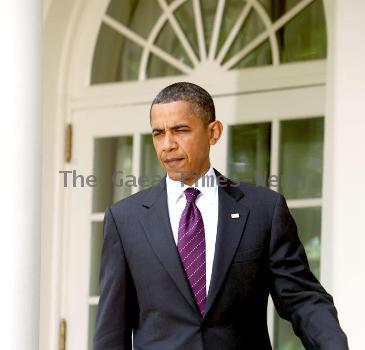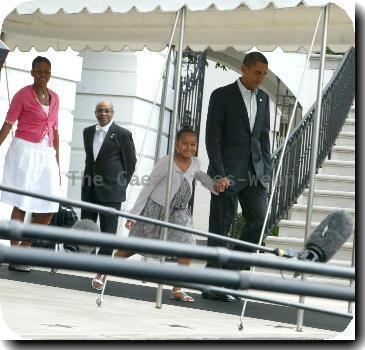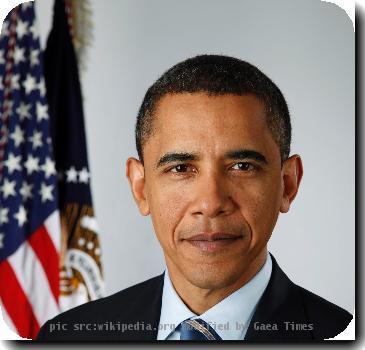Chamber of Commerce, mainly helping Republicans, emerges as formidable political force
By Jim Kuhnhenn, APSaturday, August 21, 2010
Chamber emerges as formidable political force
WASHINGTON — At times subtle, at times loud, the U.S. Chamber of Commerce is spending record amounts on lobbying and in election battlegrounds, elbowing into the nation’s politics in unprecedented ways for the business community.
The country’s largest business lobby has pledged to spend $75 million in this year’s elections. That’s on top of a lobbying effort that already has cost the organization nearly $190 million since Barack Obama became president in January 2009.
Those numbers alone, together with what chamber officials say is a network of online backers that can amplify the pro-business message, give the group clout as a virtual third party and a powerful voice in what laws are made and who’s elected to write them.
“Elections have consequences, votes matter,” said Bill Miller, the chamber’s political director. “And we’re going to go out and engage in an effort to try and ensure we have people on Capitol Hill that will listen to our arguments and propose and promote ideas that are more supportive of the free enterprise system.”
In its dual lobbying-politicking roles, the chamber has been a visible player in congressional debates, fighting Obama administration initiatives on health care, financial regulations and energy policy. It’s weighed in on Senate contests, spending more than $4 million so far in Massachusetts, Arkansas, Colorado, Pennsylvania, Illinois and Ohio. It’s endorsed Republican Senate candidates in Florida, California and Missouri, and it plans another wave of ads around Labor Day.
This expanded entry into politics comes as legal restraints on the political activities of corporations and unions are eased. As a result, the chamber is not operating in a void.
A group of independent organizations is acting as a sort of GOP auxiliary, raising big bucks to help GOP. Their efforts led Obama, in his radio and Internet address Saturday, to decry the “flood of attack ads run by shadowy groups with harmless-sounding names.”
Democrats see the chamber as part of a larger army arrayed decidedly against them. Among the other participants are:
—American Crossroads, created with the help of Republican masterminds Karl Rove and Ed Gillespie. It has pledged to raise $50 million to help Republicans this year. That group and its affiliated Crossroads GPS have already spent more than $3 million airing ads against Senate Majority Leader Harry Reid, D-Nev., and Democratic Senate candidates Robin Carnahan in Missouri and Michael Bennet in Colorado and for Republican Rob Portman in Ohio.
—Americans for Prosperity, founded by millionaire David Koch of Wichita, Kan.-based Koch Industries. It has aired ads in at least eight House districts criticizing Democrats’ voting records. AFP president Tim Phillips said the group has raised more than $26 million this year and is planning new ads in three Arizona and three Florida congressional districts next week. The group is spending $4.1 million to air an ad in 11 states that disparages Congress’ economic stimulus package. “We want to make these guys on the left defend on our issues,” Phillips said.
Supreme Court and lower court decisions have not altered the chamber’s political approach. It does not have to disclose its donors, many of them large corporate contributors, because its ads don’t specifically call for the defeat or election of candidates. Rather, the ads admonish candidates or salute them for their stands on issues.
Democratic efforts to pass legislation that would require groups that run political ads to disclose their donors have failed in the Senate. In his weekly address, Obama renewed his call for Senate Republicans to stop blocking the legislation.
“We don’t know who’s behind these ads and we don’t know who’s paying for them,” the president said.
While the chamber’s politicking leans Republican, its lobbying can cut both ways. On a handful of key initiatives — the $700 billion rescue of banks, the $862 billion economic stimulus and the bailout of the auto industry — the chamber sided with the administration and against most congressional Republicans.
“I find it mystifying that after accomplishing so many pro-business priorities that they would go ahead and try to take out the members who worked on their agenda,” said Eric Schultz, the communications director for the Democratic Senatorial Campaign Committee.
The chamber’s ads have criticized Democratic Senate candidates such as Alexi Giannoulias in Illinois and Joe Sestak in Pennsylvania and voiced support for Portman in Ohio. It also spent $300,000 in ads supporting moderate Democrat Blanche Lincoln in her Arkansas primary contest. Lincoln is now trailing her Republican opponent and Miller would not say whether the chamber would help her out again.
More quietly, a chamber affiliate contributed $500,000 to a political group associated with Florida Republican gubernatorial candidate Bill McCollum that has been running ads against McCollum’s GOP primary opponent, Rick Scott.
The big spending by the chamber and others comes as Democratic Party groups enjoy a significant cash on hand advantage over their Republican counterparts. Democrats are also getting a boost from labor; the AFL-CIO has pledged to spend $53 million on the 2010 elections.
“We fill a necessary void that existed that was necessary to counterbalance the very extraordinary voice that big labor and trial lawyers an other antibusiness groups had played in an unbalanced way,” Miller said.
Ben Ginsberg, a Republican campaign finance lawyer who has favored less regulation on political money, said groups such as the chamber have emerged as a result of court rulings and the 2002 law that blocked the national parties from raising unlimited money from corporations and unions.
“At the same time that the special interests groups got the shot in the arm from the courts,” he said, the law “rendered the national party committees historically weak.” In his view, “what the reformers have given us … is a system dominated by special interest groups.”
For all its aggressiveness, the chamber’s rate of success so far is mixed. Mandatory health insurance and new financial regulations are now the law of the land. Democrats have scaled down attempts to pass energy legislation, and efforts to ease labor organizing rules have stalled.
Its $1 million in advertising in Massachusetts this year helped Republican Scott Brown win a special election and fill the Senate seat that had been occupied by the late Sen. Edward M. Kennedy. But the chamber’s financial backing didn’t help a losing Senate candidate Jane Norton in Colorado and a House candidate in Pennsylvania. And other Republicans backed by the chamber have also lost.
“Evaluate my track record at end of the year,” Miller said. “It’s important to be in races that are the tight races, not the easy races.”
Online:
U.S. Chamber of Commerce: www.uschamber.com
American Crossroads: www.americancrossroads.org
Americans for Prosperity: americansforprosperity.org/national-site
AFL-CIO: aflcio.org/
Tags: Barack Obama, Colorado, Florida, Government Regulations, Industry Regulation, Lobbying, North America, Ohio, Pennsylvania, Political Issues, Political Organizations, Political Parties, Senate Elections, United States, Washington



